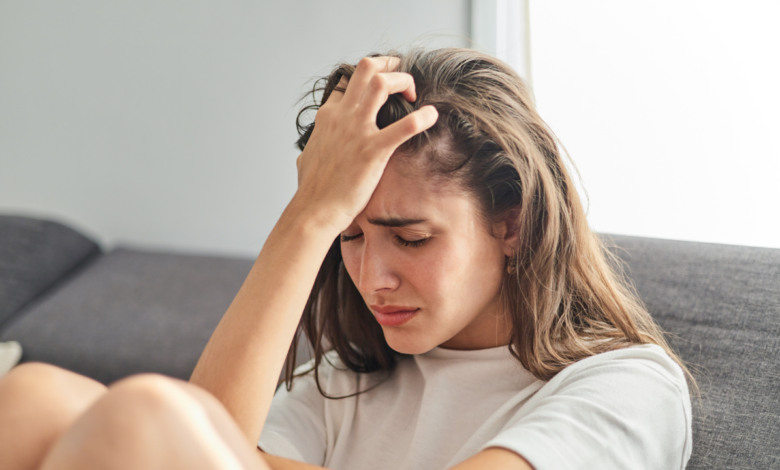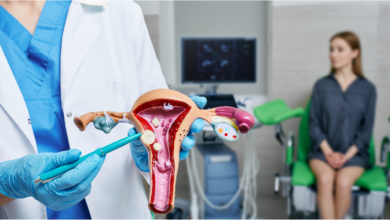
What is anxiety?
Anxiety is a common mental health condition associated with excessive worry, fear and apprehension. It can interfere with daily life and cause physical and emotional discomfort.
What are the symptoms of anxiety?
Common symptoms of anxiety include:
- excessive worry or fear
- feeling restless or anxious
- difficulty concentrating or staying focused
- irritability
- muscle tension
- sleep disturbances
- physical symptoms such as a fast heartbeat, sweating or shortness of breath
Who can suffer from anxiety?
Anxiety can affect anyone, regardless of age, gender or background. However, certain factors can increase the risk, such as:
• family history of anxiety or other mental health conditions
• traumatic events
• stressful life circumstances
• hormonal changes
• substance abuse
What are the types of anxiety?
There are many types of anxiety disorders, including:
- Generalized anxiety disorder (GAD): Persistent excessive worry about many things.
- Panic disorder: Recurrent unexpected panic attacks.
- Specific phobia: Intense fear of a specific object or situation.
- Social anxiety disorder: Fear of social situations and the judgment of others.
- Obsessive-compulsive disorder (OCD): Intrusive thoughts and compulsive behaviors.
What diagnostic tests are available for anxiety?
While there are no definitive medical tests for anxiety, a healthcare professional can diagnose it based on a thorough evaluation, including:
- Clinical interview: Assessing symptoms and history
- Psychological assessment: Assessing anxiety levels and coping mechanisms
- Rule out other conditions: Excluding medical conditions that may mimic anxiety
What is the treatment for anxiety?
Anxiety is treatable. Common treatments include:
- Therapy: Cognitive-behavioral therapy (CBT) is particularly effective for anxiety disorders.
- Medication: Antidepressants and anti-anxiety medications can help manage symptoms.
- Lifestyle changes: Relaxation techniques, stress management, and regular exercise may also be beneficial.
What diet should I eat?
While there is no specific “anxiety diet,” a healthy and balanced diet can support overall health. Consider incorporating:
- Omega-3 fatty acids: found in fish, nuts, and seeds
- Vitamins and minerals: fruits, vegetables, whole grains, and lean proteins
- Probiotics: fermented foods such as yogurt and kefir
Which doctor will treat anxiety?
• Psychologist
Can anxiety be completely cured?
While anxiety cannot be completely “cured,” it can often be managed with proper treatment. Many people with anxiety can lead satisfying lives with the right support. If you or someone you know is experiencing symptoms of anxiety, it’s important to seek help.





